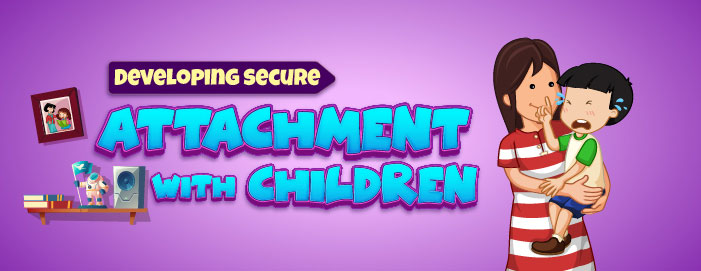|
How to develop a secure attachment with your child: 
Watch Over Me: Sometimes your child just needs you to be there. While it may seem like you are “doing nothing”, your presence encourages your child to learn and discover the world around them.
Delight in Me: Children want their parents to show delight in who they are. In good times, as you are watching them engage in activities, you can smile with warmth and provide them eye contact. In challenging times when they are distressed, children would want to feel that their parents sure do love them, even when things do not feel so great.
Enjoy with Me:Sometimes children want their parents to share their activities and adventure. Join in with your child in their make-believe play, or ask them to tell you more about their drawing.
Help Me:Sometimes children need help when they are exploring. Provide them with just enough support (not too much) so that they learn how to do things on their own and experience a sense of mastery.
Protect Me:Children need that you as parents are committed to protect them from physical, mental and emotional harm and that they can count on you.
Comfort Me: Children need to be comforted for all kinds of distress. The younger they are, the more important it may be to offer empathic comfort that sends a message to them that you will be there to ease their discomfort but you also accept the emotions they are feeling and can help them regulate these feelings too.
Organise my Feelings: Children enter the world with a range of emotions but with little ability to understand what they mean or how to calm them. That’s why they need you to help regulate their emotions for them, and gradually teach them how to regulate them on their own.
References:
Benoit, D. (2004). Infant-parent attachment: Definition, types, antecedents, measurement and outcome. Paediatrics & child health, 9(8), 541-545.
Hoffman, K., Cooper, G., & Powell, B. (2017). Raising a secure child: how circle of security parenting can help you nurture your child's attachment, emotional resilience, and freedom to explore. Guilford Publications.
|



